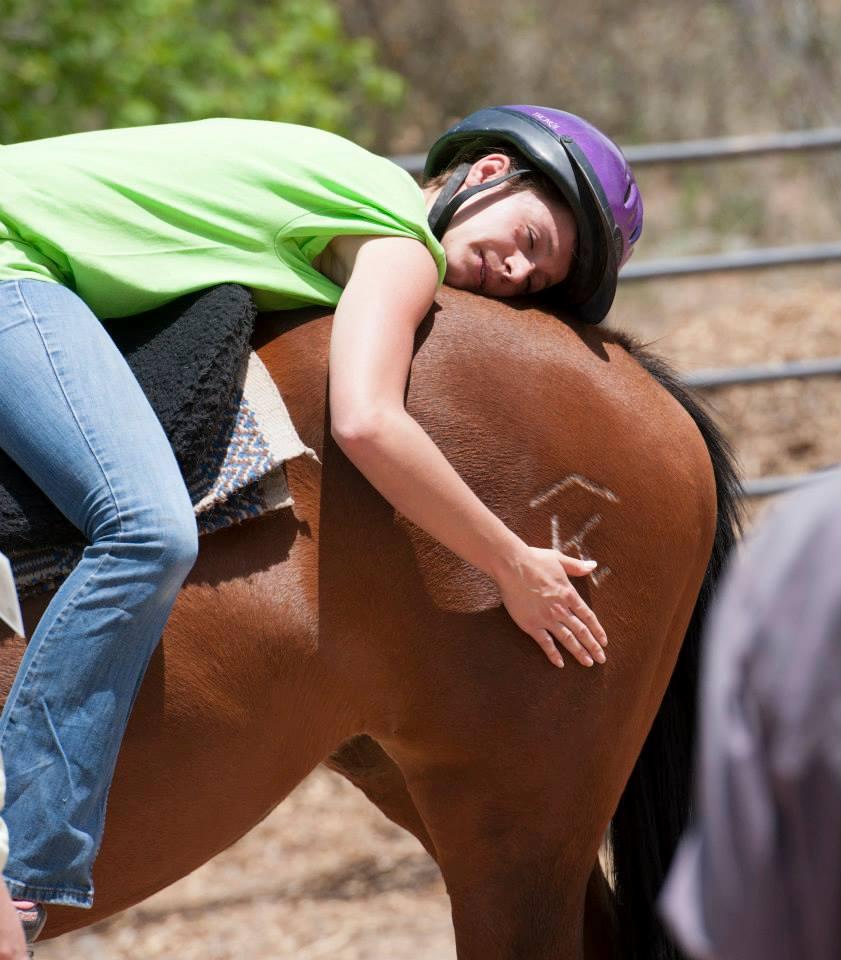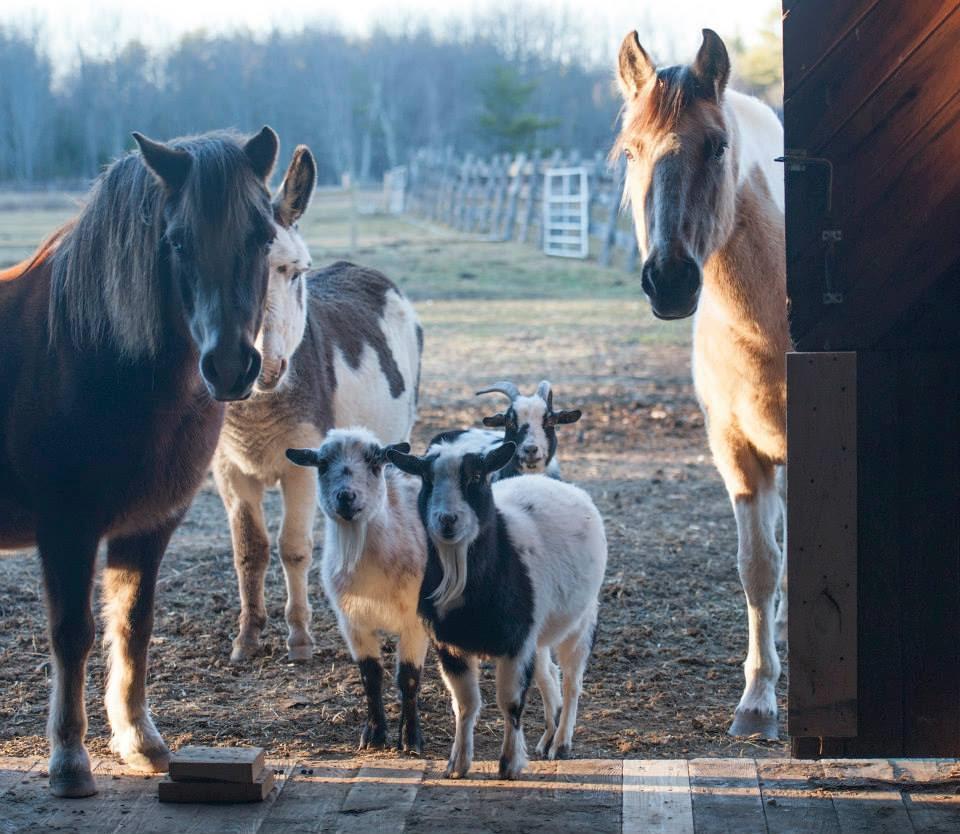-
Program Highlights
The certificate program is delivered through a mix of online and residential studies over the course of 10 months for a total of 52 CEUs (520 hours). The program can be completed alongside full-time employment or study, regardless of where you live.
-
Program Components
1. Courses
Courses are delivered through award-winning learning management platform Canvas with weekly assignments. In addition, there are seven projects spread across the duration of the 10-month program. Assignments and projects are based on engagement (peer-to-peer and to instructor, and in your community).
2. Residential Workshops
Residential workshops provide an opportunity for hands-on intensive skill-building and facilitation feedback.
Residential Workshop 1: The focus of this workshop is experiential engagement in a variety of equine-assisted activities while developing understanding about activity design. The beginnings of facilitation practice are introduced.
Residential Workshop 2: The focus of this workshop is facilitation skill development and other practitioner competencies such as risk management and treatment planning.
Residential Workshop 3: The focus of this workshop is continued practice and advanced application of equine interactions in treatment. Participants have the opportunity to plan and facilitate sessions with clients.
3. Supervised Client Work
There are 50 hours of supervised client work required for program completion. Students locate sites/practitioners in their own communities where they can complete the required hours. Supervision (consultation) and feedback is provided by the on-site supervisor and by the faculty supervisor (individual and group calls). Students may complete all hours at a single site or split hours between multiple sites.
4. Additional Trainings
There are 50 hours of additional trainings required for program completion. This program component provides an opportunity to strengthen knowledge and skill in a tailored way. Students can choose trainings related to mental health, horses, and equine-assisted work.
-

-

-
Program Competencies
1. Theory, Ethics, Research, and Knowledge of Professional Area
A thorough understanding of theoretical foundations and state of research assists practitioners in forming an accurate picture of how equine interactions and the equine environment are included within psychotherapy and counseling. Advanced knowledge of this professional area not only underpins competent practice but also assists in building connections to the larger mental health community, and facilitates appropriate cross-disciplinary communication. Careful consideration of the ethics surrounding horses as part of mental health services is necessary, both specific to the therapeutic environment with the therapist-client relationship, and to broader human-horse interactions.
2. Delivering Treatment and Considerations for Your Practice
Delivering treatment where equine interactions are incorporated in an ethical and effective way requires facilitation skill (individual and group); treatment planning specific to the populations and theoretical approach the practitioner is trained in; intentionality; risk management; facility and environmental considerations; and sound business practices.
3. Equine-Related Competencies
A core part of competent practice is in-depth understanding of horses, their welfare, behavior, needs, and communication, as well as selection, assessment, management, and training of therapy horses to create a healthy and sustainable environment for all involved.
-
Program Coordinator
Nina Ekholm Fry leads the Equine-Assisted Mental Health Practitioner Certificate Program.
Nina Ekholm Fry, MSSc., CCTP, is the Director of Equine Programs at the Institute for Human-Animal Connection at University of Denver. She holds faculty positions in the Graduate School of Professional Psychology and the Graduate School of Social Work, and leads the post-graduate Equine-Assisted Mental Health Practitioner Certificate program. She also serves as the coordinator for the MSW certificate of specialization in Human-Animal-Environment Interactions in Social Work (HAEI-SW), available to graduate students at University of Denver. Nina is the former Director of Equine-Assisted Mental Health at Prescott College and served as Associate Professor in the Department of Psychology and Counselor Education until 2014.
For the past 15 years, Nina has focused on horses in human services in the U.S. and Europe, specializing in inclusion of equine interactions to enhance psychotherapy and counseling. She is the past Chair of the Certification Board for Equine Interaction Professionals (CBEIP) and Vice President of the American Hippotherapy Association (AHA Inc.). She is a Certified Clinical Trauma Professional (CCTP) and has worked with populations diagnosed with trauma/PTSD, ASD, ADHD, anxiety and addiction, as well as with youth-at-risk and military service members and veterans, and consults on psychotherapy services with horses nationally. In addition to client work and teaching, Nina leads facilitation workshops and is the former Chief Editor of the HETI Journal, published by the International Federation of Horses in Education and Therapy.
Nina has a particular interest in equine welfare issues and ethics, both in equine-assisted services and in human-horse interactions in general. She holds a certificate in equine management (Vocational College of Ostrobothnia) and is a certified Riding Instructor (CHA level 4/4). Nina is a certified Therapeutic Riding Instructor and a certified Equine Specialist in Mental Health and Learning through PATH International. She is a former Equestrian Special Olympics coach and teaches Equine Behavior at Yavapai College. As a practitioner member of the International Society of Equitation Science (ISES), she is dedicated to ethical equitation, correct application of learning theory, and the understanding of equine cognition, behavior, and mental states as part of equine management, assessment, handling, and training. Recent activities in this area include speaking at the Progressive Equine Behavior Forum 2020, 2019, and 2018, at the FEI European Championship conference on Horses, Science & Healthcare in 2019, and the Homes for Horses Coalition conference in 2017, all by invitation. She led the Watershed Animal Fund national taskforce on equine behavior from 2016 to 2017, and served as the Interim Program Director for the Equine Initiative at Yavapai Humane Society in Arizona from 2015 to 2016 where she started an adoption-focused equine rehabilitation and re-training program, and designed the YHS Equine Center. Nina is active in the equine welfare community in the United States, and consults on equine behavior and facility design nationally.
Nina has a background as a mental health practitioner providing clinical services, as a competitive rider and equine behavior consultant; and as an academic professional engaged in national and international organizations for therapeutic equine interactions as well as equine behavior and welfare. She has a particular interest in ethics and social justice perspectives within human-animal interactions.

